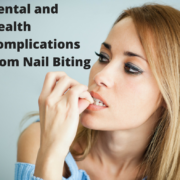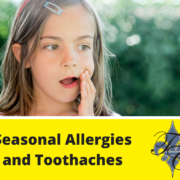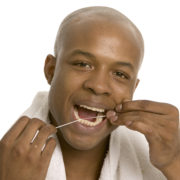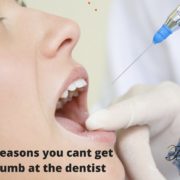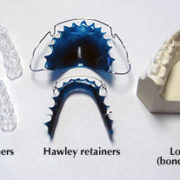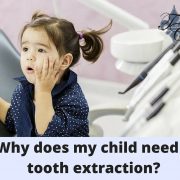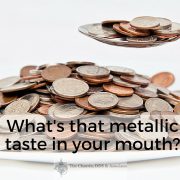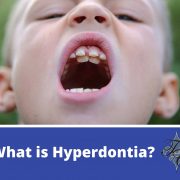Dental and health complications from nail biting
Onychophagia, or nail biting, is a relatively common habit. It is estimated that 30% of children, 45% of teenagers, 25% of young adults, and 5% of older adults bite their nails. Like many habits, it is a hard one to break! However, it is definitely a habit that needs to be broken, as there are many other side effects besides chewed up nails.
Dental problems associated with nail biting
It’s estimated that frequent nail biters will cost themselves an additional $4,000 in dental bills over the course of their lives. That constant chewing is not good for your teeth! Nail biting can cause a number of different dental problems, such as:
- Bruxism
- Tooth loss
- Teeth chipping or cracking
- Dental occlusion issues (the way your teeth fit together when your mouth is closed)
- Teeth shifting position
- Premature wearing down of teeth
- Sore or damaged gums
There are mouth guards you can wear that protect your teeth, as well as help to deter nail biting. Your dentist can also teach you some therapy techniques that will help you resist biting your nails.
Nail biting opens the door to several other health risks
Another risk nail biters face is illness. We use our hands for everything! As a result, we have all sorts of bacteria living on our skin and under our nails. And under our nails is a prime location for bacteria to live, including E. coli and Salmonella. When you bite your nails, you’re transferring those bacteria to your mouth. Think about how you wash your hands. Do you use a nail brush to scrub under them every time? Probably not! A standard hand washing isn’t going to remove those bacteria, so there could be all manner of pathogens under your nails.
Additionally, your mouth is full of bacteria as well! So not only are you putting more bacteria in your mouth, different bacteria is getting under your nails and on your fingers. When you chew on your nails, tiny tears, cuts, or abrasions can form. These breaks in the skin are where bacteria will enter the bloodstream. Most often resulting in the infection paronychia – a skin infection that occurs around the nail. This infection causes redness, swelling, and pus around the nail. Depending on the severity of the infection, it may have to be drained surgically! This infection is also one of the most common nail problems. And if you have the form of HPV that causes warts on your hands and are a nail biter, you can actually transfer those warts from your fingers to your mouth and lips.
If nail biting is a problem for you, contact Dr. Chauvin’s office so we can make sure your teeth are okay, and help you learn how to quit.

